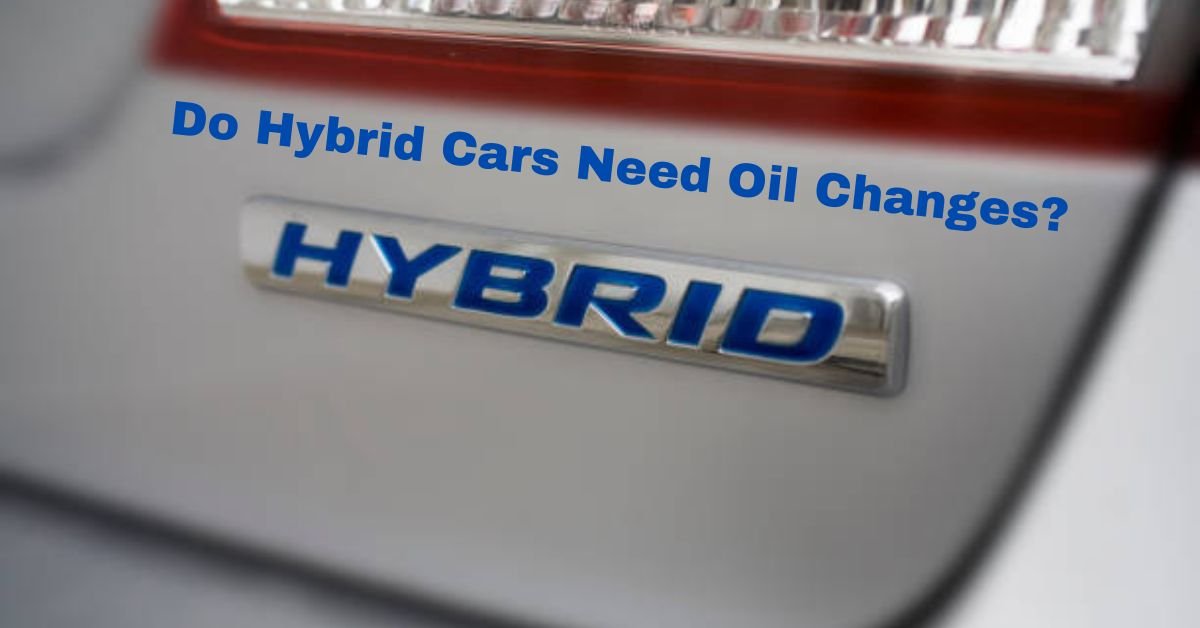As hybrid vehicles become more common on the roads, many drivers are curious about how maintenance differs from that of traditional gasoline-powered cars. One of the most common questions among hybrid car owners is whether hybrid cars need oil changes. After all, hybrid cars combine both a gasoline engine and an electric motor, which leads people to wonder how this impacts maintenance needs.
In this blog post, we’ll dive into whether hybrid cars need oil changes, how often, and what unique maintenance requirements you should be aware of to keep your hybrid in top condition.
Do Hybrid Cars Need Oil Changes?
1. Understanding Hybrid Cars and Their Engines
Hybrid cars combine a traditional internal combustion engine (ICE) with an electric motor and a battery pack. The electric motor allows the car to run on electric power alone for short distances or at low speeds, while the gasoline engine kicks in for higher speeds or longer trips. This combination lowers emissions and increases fuel efficiency.
However, even though hybrids use electricity for part of their operation, the gasoline engine still plays a role, and it’s the gasoline engine that requires oil changes. So, do hybrid cars need oil changes? Though there are a few crucial factors to remember, the answer is yes.
2. Why Hybrid Cars Still Need Oil Changes
Just like conventional cars, hybrid vehicles with gasoline engines require regular oil changes to ensure the engine is properly lubricated and operates smoothly. The oil in a car’s engine is crucial for reducing friction between the engine parts, preventing overheating, and ensuring the engine runs efficiently.
While the electric motor in a hybrid vehicle helps reduce the workload on the gasoline engine and improves fuel efficiency, the gasoline engine still has to function for longer trips or when extra power is needed. Without regular oil changes, the engine’s parts would wear out more quickly, potentially leading to costly repairs or a shorter lifespan for the engine.
3. How Often Should You Change the Oil in a Hybrid Car?
The frequency of oil changes for hybrid cars is similar to that of traditional vehicles, but there may be slight differences depending on the model and driving conditions.
For most hybrid vehicles, manufacturers recommend oil changes every 5,000 to 10,000 miles, with many models falling closer to the 7,500-mile mark. However, it’s important to consult your owner’s manual for the specific oil change intervals for your hybrid car. Keep in mind that the type of oil you use (synthetic vs. conventional) and your driving habits (city driving vs. highway driving) can also impact the frequency of oil changes.
Must Read: Can You Use A Marine Battery In A Car?

4. Factors Affecting Hybrids’ Oil Change Frequency
- Driving Habits: If you mostly drive in city traffic with frequent stops and starts, you may need to change the oil more often, as this type of driving puts more strain on the engine. On the other hand, if you do mostly highway driving where the engine is running smoothly for longer periods, you may be able to go longer between oil changes.
- Climate and Temperature: Extreme temperatures—either hot or cold—can affect oil quality. In warmer climates, oil may break down more quickly, requiring more frequent changes. Similarly, in very cold climates, you might need to change your oil more often to ensure it doesn’t thicken and cause engine problems.
- Type of Oil: Most modern hybrids use synthetic oil, which generally lasts longer than conventional oil. This means you might be able to go longer between oil changes, but it’s still important to follow the manufacturer’s guidelines.
5. Do Hybrid Vehicles Require Different Kinds of Upkeep?
In addition to oil changes, hybrid vehicles do require some additional maintenance unique to their dual power systems. Here are some areas to consider:
- Battery Maintenance: The electric battery in a hybrid is a critical component that needs to be properly maintained. Some hybrid cars require periodic checks of the battery’s health to ensure it’s functioning optimally. Depending on your hybrid model, the battery may last between 8 to 10 years or longer, but it’s important to follow the manufacturer’s recommendations for battery care.
- Brakes: Since hybrid vehicles use regenerative braking, the brakes often experience less wear and tear compared to traditional vehicles. Still, it’s important to have your brakes inspected regularly to ensure they’re working correctly.
- Tire Rotation and Alignment: Just like conventional cars, hybrid vehicles require regular tire rotations and alignments to ensure even wear and optimal performance.
6. How Can Hybrid Cars Help Save on Maintenance Costs?
One of the main reasons people are drawn to hybrid cars is their potential to save money on fuel costs. However, they can also save money on maintenance in certain areas. For example, because the gasoline engine in a hybrid isn’t used as frequently, it tends to experience less wear, which could mean fewer repair costs over the vehicle’s lifespan. Additionally, with regenerative braking, the brake pads last longer, which can save on brake maintenance.
While hybrid cars still need oil changes and regular maintenance, their overall maintenance costs might be lower than traditional gasoline-powered vehicles over time.
Conclusion
To answer the burning question: yes, hybrid cars do need oil changes. Despite their electric motor, hybrids still rely on a gasoline engine that requires regular oil changes for optimal performance. The frequency of oil changes may vary depending on your driving habits and the type of oil used, but they generally follow the same schedule as conventional cars.
Remember to consult your hybrid vehicle’s owner’s manual for specific maintenance recommendations, and always follow the guidelines for oil changes, battery care, and other maintenance tasks. By doing so, you’ll ensure that your hybrid car runs smoothly for years to come, saving you both time and money in the long run.
